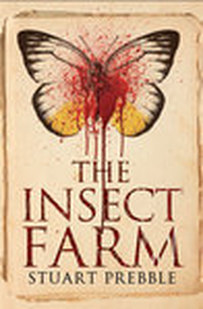
Given the popularity of novels narrated from the point of view of someone with communication or comprehension issues, from The Curious Incident of the Dog in the Night-Time to Elizabeth Is Missing, I was curious about the author’s decision to show Roger through the eyes of his brother. Jonathan often comments on the impossibility of understanding what goes on within his brother’s mind, yet I was a little surprised that he rarely acknowledged any envy of his special treatment, nor did he encourage Roger to develop his skills to, for example, make his own simple breakfast. I wondered in the course of my reading whether this were a reflection of my own limited understanding of learning disabilities or, as in my critiques of fictional therapists, that of the author. The surprise and immensely satisfying ending suggested another interpretation: that this was very much down to a blind spot of the narrator himself. So I asked the author about this at our online book group meeting (my question in bold and the author’s reply following immediately after):
I enjoyed how the ending reveals that Jonathan has significantly underestimated Roger’s capacity to understand the tragic events unfolding around him. He also never acknowledges a dark side to their relationship, not even the slightest hint of sibling rivalry as children. Might it be this denial that leads to his sacrificing his own ambitions for the sake of his brother and to his ultimate downfall?
Thanks for this. I always wanted Roger to be an enigma … for us always to suspect that there might be more to him than met the eye. I tried to drop clues as we went through the narrative … but it was always a balance between making him too "knowing" or too naive. I feel gratified that the "surprise" seems to have worked for most readers so far …
To my mind, Jonathan has characteristics of the compulsive carer whose compassion for another comes before compassion for himself, which also came into my discussion with Norah on her compassion blog post.
Since it’s foreshadowed in the prologue, I don’t think I’m giving too much away when I also say that the novel reminds me of a documentary I once watched about research into the decomposition of the human body as well as the Jim Crace novel, Being Dead, neither of which are as gruesome as one might expect.
Stuart Prebble’s debut is a literary suspense novel about obsession, sibling loyalty, male jealousy, the reliability of memory and the enigma of another’s mind – and an innovative take on farming. As with the colony of insects bred by Roger, it’s certainly worth a closer look.





















 RSS Feed
RSS Feed





















